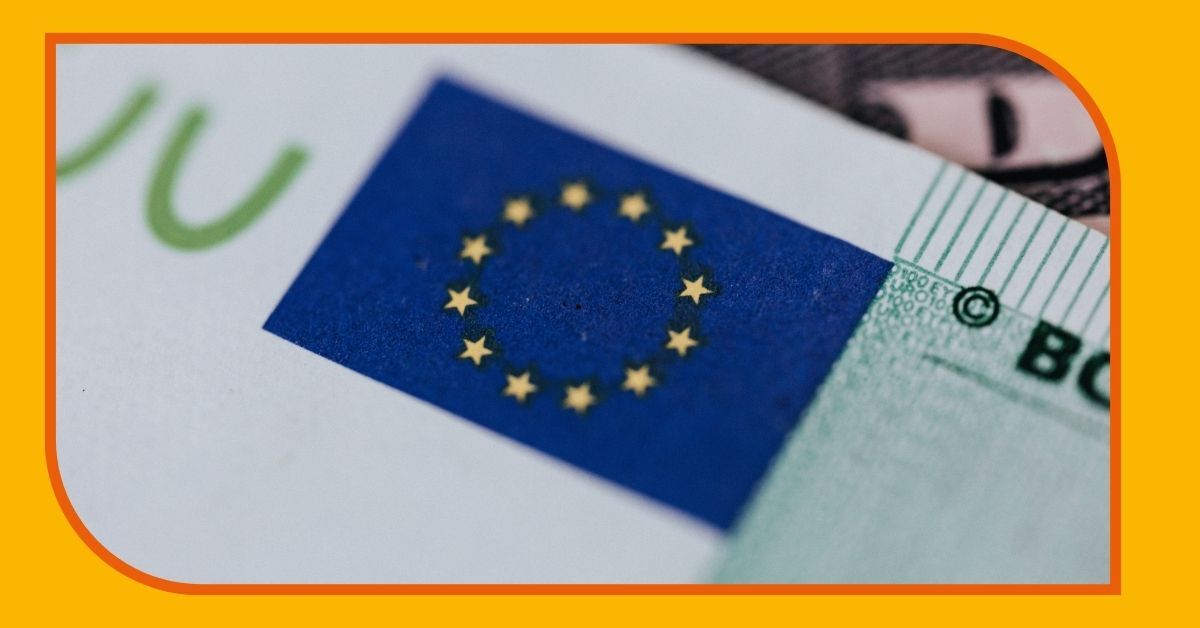We take the utmost care to ensure that the content of this site is updated regularly. Content is provided for information only and we advise you to seek further guidance and make independent enquiries before relying upon it.
Social security
Right to medical care
Once you are registered in Sweden, you are entitled to medical care under the same terms as others who live in Sweden. This means that you pay the standard patient fee for care in the public healthcare system.
Insured in Sweden
You are generally insured in Sweden if you live in Sweden. This means that you may be entitled to various forms of compensation from Försäkringskassan. You do not need to report to or register with Försäkringskassan.
EU citizen
EU citizens and their families have a right to move to another EU country as long as certain requirements are met. An EU citizen has the right to live in an EU country which is not their country of origin as long as they meet the requirements for right of residence through work, studies or with sufficient means. In Sweden you simply need to register with the Swedish Tax Agency.
As a Nordic citizen (citizen from Denmark, Norway, Iceland, Finland,Sweden) you are also considered as an EU citizen. You do not need to apply for permits to live in Sweden. If your family are citizens of a non-EU country they can live with you in Sweden as long as you have right of residence. In this case, your family should apply for a residence card in accordance with EU rules.
EU countries include:
Austria, Belgium, Bulgaria, Croatia, Cyprus, Czech Republic, Denmark, Estonia, Finland, France, Germany, Greece, Hungary, Ireland, Island, Italy, Latvia, Liechtenstein, Lithuania, Luxembourg, Malta, Norway, Poland, Portugal, Romania, Slovakia, Slovenia, Spain, Sweden, Switzerland, The Netherlands, United Kingdom
For more information: Migrationsverkret
Partner of an EU citizen
If you have a Swedish or EU partner, you can apply for a residence card. Your partner must be living and working in Sweden and be able to sponsor you. That essentially means that the partner agrees to be financially responsible for you while you are looking for a job or when you are without work.
For more information: Migrationsverkret
European Blue Card
If you are a citizen of a country outside the EU and have received an offer of a highly qualified job, you can apply for an EU Blue Card. You must have a university education equivalent to 180 university credits, or five years’ professional experience and a salary equal to at least one and a half times the average gross salary in Sweden.
An EU Blue Card issued in Sweden entitles you to live and work in Sweden. When you have had an EU Blue Card in Sweden or other countries within the EU for five years, you can apply for permanent resident status in the country where you are living, provided that you have lived in that country for the last two years. Permanent resident status means that you have certain rights that an EU citizen has and that you are better placed to work, study or start your own company in another EU country.
In order to obtain an EU Blue Card, you must have:
- a valid passport
- a university education equivalent to 180 university credits, or five years’ relevant professional experience
- taken out or applied for a comprehensive health insurance
- an employment contract or offer of highly qualified employment lasting at least one year
- no less than one and a half times the average gross salary in Sweden, before taxes.
Your employer must:
- advertise the position in Sweden and within EU/EES and Switzerland for at least ten days
- complete an offer of employment and give the trade union concerned the opportunity to state its opinion about the terms of employment
- offer terms of employment that are at least on the same level as Swedish collective agreements or that which is customary in your occupation or industry.
No exemption applies
When no exemptions apply, the employer must follow standard procedures and fulfill these work permit requirements:
The employer must recruit first in Sweden and Europe.
The vacancy should be reported at least ten days in the Swedish Public Employment Service (Arbetsförmedlingen) job, which is linked to the EURES job service.The employment benefits should be in accordance with Swedish law and the foreign national employee must earn at least the Swedish customary wage in that industry.
These requirements make obtaining a work permit difficult. The employer must prove that the company could not find a suitable employee in Europe. As well the employer has to complete an offer of employment and allow the relevant trade union to provide a statement of opinion regarding the terms of employment. Specific regulations are in effect for certain occupations and citizens of certain countries. Within certain industries, more stringent requirements can be placed on the employer.
For more information: Migrationsverkret
Please note that Beyondo cannot help you obtain a work permit.
Taxation
Sweden has a taxation system for income from work that combines an income tax (paid by the employee) with social security contributions (employers contributions) that are paid by the employer. The employer pays around 31% tax over his gross salary and the employer pays an additional 31,42% employers cost in employer social fees.
If you stay and work in Sweden for a continuous period of at least six months you must register for income taxation. If you intend to stay in Sweden for more than one year you must apply for registration in the Swedish Population Register at the Swedish Tax Agency (apply for civil registration). If your application is approved, you will receive a Swedish personal identity number.
When staying for at least six months, you are considered as resident in Sweden for tax purposes, and are liable for taxation in Sweden on all of your worldwide income. You must also file a Swedish income tax return. Your tax return must be filed no later than May 2nd of the year after the fiscal year.
If you work in Sweden and your stay here lasts less than six months, you are required to pay tax in accordance with the Special Income Tax for Non-Residents Act, or SINK. SINK is applicable if your employer is a Swedish employer, or a foreign employer who is established in Sweden. You are then considered as having a limited tax liability in Sweden, but note that only income from Swedish sources will be taxed here.
SINK means the following:
- You pay a flat-rate income tax of 20%, which is deducted by your employer.
- You do not have to declare your employment income on a Swedish tax return.
- You cannot make any deductions against your Swedish income, for costs or similar.
Swedish Identification number - personnummer
If you plan to live in Sweden for a longer period of time, you will need to register and be listed in the Swedish Population Register, register as a resident in Sweden. Your details such as name, address, date of birth, and civil status will be registered with the Swedish Tax Agency. Once you are registered as a citizen in Sweden with the tax authorities, you will receive a personal identity number, a ‘personnummer’. The Swedish Tax Agency decides if you meet the requirements.
Swedish business culture - what do you need to know
Attitudes and values form the basis of any culture, in any country. They reflect the ways people think and behave. Knowledge of these can be significant if you wish to communicate effectively.
Corporate social responsibility
Sweden is one of the world’s leading countries in corporate social responsibility (CSR). Issues such as climate change, gender, human rights, and anti-corruption are all considered when doing business. Since the 1970s Sweden has been active and fast in reacting to the calls for CSR which nowadays is a crucial part of strategic planning in Swedish business life.
Punctuality, working in Sweden
In Sweden, as in Finland and Denmark, punctuality is very important both when doing business and making social engagements. It follows that you should never be late. If you must be late for any reason, it is polite to phone and let someone know. Being late is seen as poor etiquette.
Scheduling and planning are sometimes mentioned as part of the Swedish ‘way of life'. As a rule spontaneity and improvisation are not the strongest characteristics of Swedes.
Gift giving - business gifts- in Sweden
In business dealings, gifts are rarely given at the beginning of the relationship. Wait for your Swedish partner to give you a gift first. Although exchanging gifts is not common at the beginning of a business relationship, it is appropriate when you are closing your transaction.
Business dress code in Sweden
Sweden is one of the European countries where a casual dress code is the most popular in the workplace. However, for business appointments, you should dress more conservatively. Swedes themselves are usually fashionably well-dressed in public. Appropriate clothes would be a dark suit and tie for men, and a business suit or skirt and blouse for women. Trousers are also acceptable for businesswomen in Sweden. Swedes value quality and that is also true when it comes to clothes.
Working hours in Sweden
Normal working hours in Sweden are 40 hours a week with an upper limit of 48 hours. Obviously, there is no limit for managers who sometimes have to work at home. Due to the development of telecommunications, more and more Swedes are used to working from home. Always keep in mind, though, that after 5 pm most Swedish employees go home to take care of their families. Working overtime is neither valued nor seen as necessary in fact it can be seen as an indication of poor planning and time management.
Unemployment Insurance
In Sweden it is common to have unemployment insurance, around 80% of the working population has one. Migrationsverket (Swedish Migration Agency) recommends newcomers in Sweden sign up for one. In Swedish, unemployment insurance is called arbetslöshetskassa or a-kassa for short.
What unemployment insurance gives you
If you lose your job, unemployment payments are meant to keep you afloat until you find a new one. Usually, you are entitled to 80% of your former salary for the first 200 days, then for the following 100 days you will receive about 70% of your former salary.
Furthermore, there is a limit to the payments which means that 680 SEK is the maximum sum you get a day. This means you will receive 80% if you had a relatively low income previously. But it is possible to choose to add extra insurance to ensure that you will receive 80% of your former income.
It is also possible that you are entitled to reduced unemployment payments (circa 320 SEK a day) even if you haven’t signed up for an unemployment fund. This primarily applies to those who do not yet qualify for unemployment insurance. You can contact Arbetsförmedlingen (Swedish Public Employment Service) to learn more.
The unemployment payments are paid for almost one year, 300 days. However, parents with children under 18 years might get up to 450 days.
The basic conditions to receive unemployment payments are:
- You must be entirely or partially unemployed
- You must be able to work a minimum of three hours a day or 17 hours per week
- You must be actively seeking work and be prepared to accept any suitable job offer
- You must be registered at and cooperate with Arbetsförmedlingen.
Summary
You apply for unemployment payment, your A-kassa (Unemployment Insurance Fund) decides what you are entitled to and Arbetsförmedlingen supervises.
Other important things to know:
- It is not a requirement to be a Swedish citizen to join an unemployment fund. What you will need is a Swedish residence permit, a personnummer (personal ID number) and fulfill the basic conditions mentioned above
- You pay tax on unemployment insurance payments, as you do with most incomes in Sweden
- You will need to pay membership fees to the employment insurance funds, these fees varies from fund to fund
There are many different funds you can sign up to, depending on your line of work etc.
You can find a comprehensive list here.
And you can find more info about unemployment insurance on the Arbetsförmedlingen website.
Source: https://www.thenewbieguide.se/work/labour-legislation/unemployment-insurance/


